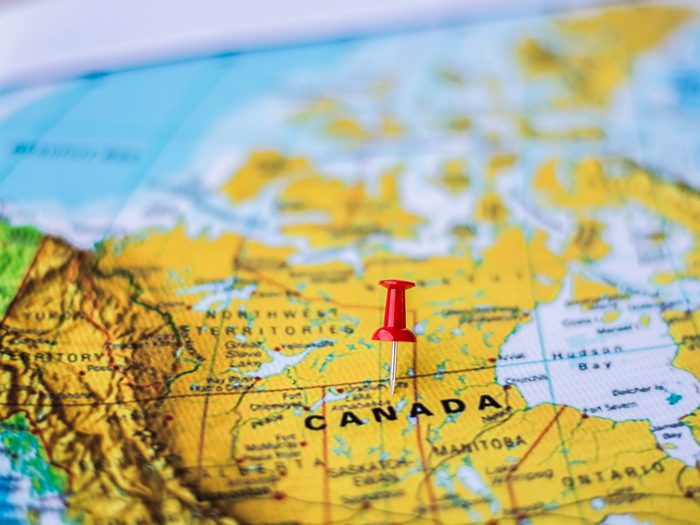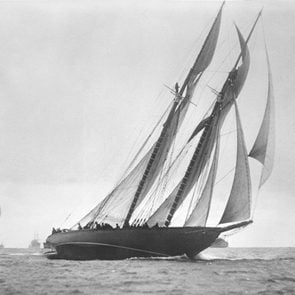The Fascinating Story of How Canada Got Its Name

...And some crazy alternatives you'll be glad they scrapped.
Imagine singing “O’ Victorialand” or carrying a passport for “Efisga.” Although it seems bizarre today, these scenarios were possible at one point in history. Here’s how one moment changed the future of the country forever.
How did Canada get its name?
The name “Canada” has Indigenous roots and originally comes from the Huron-Iroquois word kanata meaning “village” or “settlement.” In 1535, French explorer Jacques Cartier was told about the route to Kanata by two Aboriginal youths who were referring to the village of Stadacona (presently the city of Québec). It’s believed that Cartier misheard or misunderstood what they had said and used “Canada” instead to describe the entire area. By 1547, maps had already begun referring to everything north of the St. Lawrence River as Canada.
“There has been lots of speculation about what exactly was said, but we’ll never know for sure because the people [Cartier came into contact with] and their language no longer exist per se,” says Allan Greer, professor of history and Canada research chair at McGill University.
The formation of a country
Canada wasn’t always made up of 10 provinces and three territories. “For the period of New France, and early British period, Canada corresponded only to what we would call now Quebec, and Ontario,” says Jean-François Lozier, a curator at the Canadian Museum of History who specializes in French North American history. “The idea that Canada might be the name of a country is a relatively new one.”
By the late 1850s, the joining of the British North American colonies had been in the air for a while. But it wasn’t until the Charlottetown Conference in 1864 that it gained momentum. According to the Canadian Encyclopedia, 36 representatives from the colonies—known collectively as the Fathers of Confederation—met to discuss the formation of a new nation. After several conferences, on July 1, 1867, the provinces of Ontario, Quebec, Nova Scotia, and New Brunswick all came together to form the Dominion of Canada.
The alternative names
What you might not know is that the name Canada was just one of many suggested by delegates at the conference leading up to confederation. Also on the list were Albertsland and Victorialand, which were proposed in honour of Queen Victoria and her late husband. Borealia, latin for “northern,” was a name inspired by the northern lights. More suggested names were Hochelaga, which came from the Iroquoian word meaning “beaver path” and Mesoplagia, used to describe the “land between the seas.” Other options included Norland, Cabotia, Superior, and the acronym Efisga, which stood for England, France, Scotland, Ireland, Germany, and Aborigines.
“Ultimately, Canada prevailed because it had the merits of already existing and already being used by the people that pushed the Confederation agenda,” says Lozier. “It [was also] short and sweet.”
Next, find out the fascinating story behind the provincial flowers of Canada.






